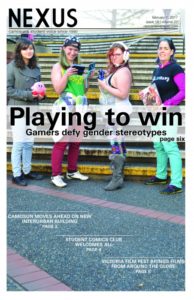“Freedom is a fragile thing and is never more than one generation away from extinction”—powerful words once uttered by Ronald Reagan. And these words could not strike truer in recent days, as freedom of speech is under fire in academia.
We live in a world where we are no longer man and woman, but man, woman, and a growing spectrum in between. We are on a cultural collision course between those who seek to crush the norms within Western society through post-modernist, constructivist philosophy and the more traditional (classical liberal/conservative) old guard, who do not see the virtue in undressing the world around them.
The refusal to submit to the demands of social justice on campus can often result in professors terminated for discussing what they believe to be true. Nobody should capitulate to those demanding to put words in one’s mouth, and to do so goes against the principles of liberalism.

Jordan Peterson is a tenured professor of psychology at the University of Toronto, and author of Maps of Meaning: The Architecture of Belief, a book that details the psychological mindset of those who justified their atrocities in the name of National Socialist and Communist dictatorships that devastated Europe and Asia.
Peterson spoke up for what he believes to be true in a YouTube video, dissecting the proposal to add gender expression and gender identity to the Canadian Human Rights Act and Bill C-16. Kelli Busey of planettransgender.com said on that site that “his articulations are nothing short of crass hate speech”; however, I believe the reasoning goes much deeper.
Bill C-16 is sloppily written, not because it seeks to protect the transgender community, but because of its lack of definition, to the point where gender boils down to “external or outward presentation through aspects such as dress, hair, makeup, body language, or voice,” as justice minister Jody Wilson-Raybould said in a House of Commons debate about the bill.
Peterson does not argue against respecting non-binary people or accepting that transgender and non-binary people exist (as some claim he has), but he does argue against the flawed principle behind the legislation.
In Washington, abuses of the progressive legislation concerned some when a male used a female change room last February. More importantly, it causes a dilemma for psychologists and other scientific professionals who research and report on gender dysphoria, because, according to some experts, the science is far from settled.
Many of those against Peterson have called for his livelihood and career because they believe that he does not want transgender people integrated into society, which is simply not true. He believes that freedom of speech is a fundamental right that we use as a tool to have honest discourse without the fear of violence, because suppressing ideas from public conversation can create resentment.
Ironically, those protesting against Peterson’s argument for freedom of speech are protesting against the ground they stand on, stomping on the same freedoms that the gay liberation movement was able to stand up and argue for.
As a freedom-loving, patriotic Canadian, I believe that everyone has the right to argue in civil discourse under the mutual expectation of non-violent debate, for without debate, there is no learning. It’s up to students and professors to stand up for each other’s freedom of speech, regardless of if you agree or disagree with what the other person is saying.
